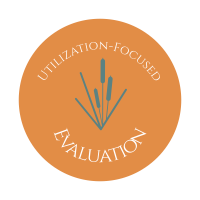Principle: Acknowledge and act on your stake in how the Anthropocene unfolds.
Premise: When it comes to the survival of humanity and the planet, we all have skin in the game, we and our loved ones are in the world that is under threat. We are not outside looking in. We are part of the global system and, there’s a good chance that we are each, in our own way, part of the problem. This gives us a quite different stance than is typically expected. Evaluators are virtually always outside the programs or projects they evaluate. Acknowledging and facing the realities of the Anthropocene transforms the stance of evaluators from external observers of change to internal participants in change.
Implications:
A shift in evaluator stance from independence to interdependence.
Making the evaluators’ values explicit and transparent.
Identifying your stake, whatever role you play – evaluator, designer, implementer, funder, commissioner of evaluations, intended user, policy maker – then sharing how you view your stake and the implications of that view for how you engage and fulfill your role. As a utilization-focused evaluator, we always have a stake in whether and how an evaluation is used.
Reality-test for yourself to be valuable as a reality-tester for others. So, how good are you at reality-testing for yourself? For example, to what extent are you practicing in your life the things you know you ought to be doing (exercise, eating right, getting enough sleep…)?
Photo Credit: Ellen Harasimowicz

